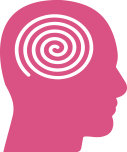Common myths about ADHD
MYTH: ADHD only affects children
 REALITY: Although most cases of ADHD are diagnosed in childhood, about 50–65% children with ADHD will continue to have impairment into adulthood. ADHD affects as many as 1 in 30 adults
REALITY: Although most cases of ADHD are diagnosed in childhood, about 50–65% children with ADHD will continue to have impairment into adulthood. ADHD affects as many as 1 in 30 adults
MYTH: Children with ADHD will simply “grow out of it”
 REALITY: There isn’t a lot of information about the persistence of ADHD into adulthood. However, recent studies suggest that 50–65% of children diagnosed with ADHD continue to have symptoms into adulthood
REALITY: There isn’t a lot of information about the persistence of ADHD into adulthood. However, recent studies suggest that 50–65% of children diagnosed with ADHD continue to have symptoms into adulthood
MYTH: All people with ADHD are physically hyperactive
 REALITY: There are three different presentations of ADHD: 1) Mostly inattentive type – individuals have mainly symptoms of inattention; 2) Mostly hyperactive/impulsive type – individuals have mainly symptoms of hyperactivity and impulsivity; and 3) Combined type – individuals have symptoms of inattention and hyperactivity/ impulsivity in more-or-less equal amounts. Therefore, people with ADHD may experience symptoms of brain hyperactivity (e.g. mind wandering) manifesting as inattention as well as or instead of symptoms of physical hyperactivity
REALITY: There are three different presentations of ADHD: 1) Mostly inattentive type – individuals have mainly symptoms of inattention; 2) Mostly hyperactive/impulsive type – individuals have mainly symptoms of hyperactivity and impulsivity; and 3) Combined type – individuals have symptoms of inattention and hyperactivity/ impulsivity in more-or-less equal amounts. Therefore, people with ADHD may experience symptoms of brain hyperactivity (e.g. mind wandering) manifesting as inattention as well as or instead of symptoms of physical hyperactivity
MYTH: People with ADHD are just lazy or disorganised
 REALITY: ADHD affects the transmission of information in the brain. Through research we now know that certain chemicals in the brain help with these transmissions. People with ADHD seem to have less of these chemicals, but we’re not sure why. We do know that much of the time, ADHD is hereditary, meaning that it is passed from parents to children. In fact, many adults are diagnosed with ADHD after their children are diagnosed
REALITY: ADHD affects the transmission of information in the brain. Through research we now know that certain chemicals in the brain help with these transmissions. People with ADHD seem to have less of these chemicals, but we’re not sure why. We do know that much of the time, ADHD is hereditary, meaning that it is passed from parents to children. In fact, many adults are diagnosed with ADHD after their children are diagnosed
MYTH: People with ADHD aren’t as smart as those without it
 REALITY: ADHD has nothing to do with intelligence. People with ADHD are just as smart as anyone else
REALITY: ADHD has nothing to do with intelligence. People with ADHD are just as smart as anyone else
MYTH: ADHD only affects school or college work
 REALITY: ADHD affects all areas of life, not just school or college work. It may affect how you get along with others, at work, in sports or hobbies, or in romantic relationships, how well you sleep, and even how you feel about yourself and the future
REALITY: ADHD affects all areas of life, not just school or college work. It may affect how you get along with others, at work, in sports or hobbies, or in romantic relationships, how well you sleep, and even how you feel about yourself and the future
MYTH: ADHD is caused by too much sugar
 REALITY: There is little evidence that sugar causes ADHD; it is not necessary to eliminate it from the diet. While a poor diet does not cause ADHD, it can worsen symptoms. Having a healthy diet, particularly breakfast, can help with concentration throughout the day
REALITY: There is little evidence that sugar causes ADHD; it is not necessary to eliminate it from the diet. While a poor diet does not cause ADHD, it can worsen symptoms. Having a healthy diet, particularly breakfast, can help with concentration throughout the day
MYTH: ADHD is a learning disability
 REALITY: ADHD is not a learning disability. However, some people with ADHD also have learning disabilities. A trained professional can help diagnose and treat these conditions
REALITY: ADHD is not a learning disability. However, some people with ADHD also have learning disabilities. A trained professional can help diagnose and treat these conditions
Useful Links
Patient support organisations
- UKAP – the UK ADHD Partnership – https://www.ukadhd.com
- ADHD Foundation – Schools – https://adhdfoundation.org.uk/
- Young Minds – ADHD and mental health – https://www.youngminds.org.uk/parent/a-z-guide/adhd/
- The National Attention Deficit Information and Support Service (ADDISS) – https://www.addiss.co.uk
- Scottish ADHD coalition – https://www.scottishadhdcoalition.org
Professional organisations
- National Association for Special Educational Needs (NASEN) – https://www.nasen.org.uk
- National Health Service – Overview ADHD – https://www.nhs.uk/conditions/attention-deficit-hyperactivity-disorder-adhd/
- National Institute for Health and Care Excellence (NICE) guideline NG87 – Information for the public – https://www.nice.org.uk/guidance/ng87/informationforpublic
You are now leaving www.adhdandyou.co.uk. You will be re-directed to an external website. Takeda accepts no responsibilty for the content of other websites.